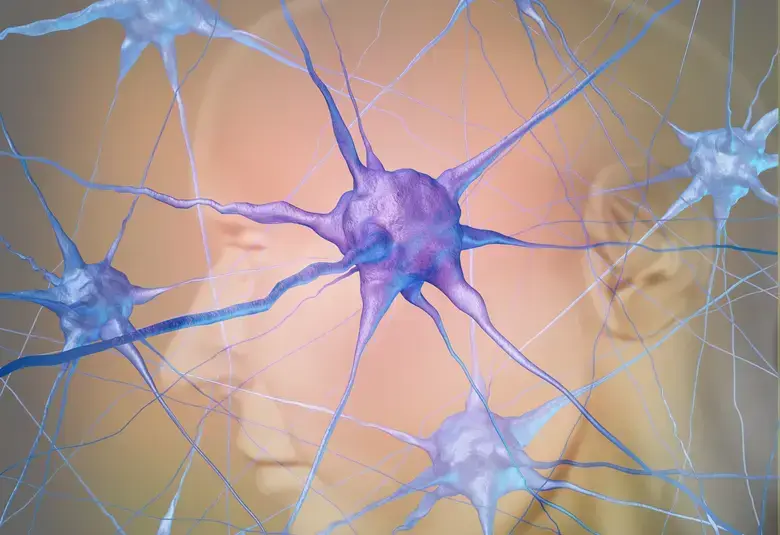Sexual side-effects, sometimes experienced by patients during treatment, are not only debilitating but may lead to poor treatment compliance and possible treatment discontinuation. Here we see that much can be done to prevent and overcome sexual side-effects.
치료 중에 환자들이 때때로 경험하는 성기능 이상반응(sexual side-effects)은 환자 상태를 악화시킬 뿐만 아니라 치료 순응도를 떨어뜨리고 치료 중단을 초래할 수도 있습니다. 지금부터 성기능 부작용을 예방하고 극복하기 위해 할 수 있는 여러 조치들을 논의하겠습니다.
“If sex is good for you, why not for your patients?” asked Angel Luis Montejo Gonzalez, Salamanca, Spain. His question was provoked by the finding that 85% of psychiatrists think that sex is important to their patients, yet 73% never ask their patients about it despite 35% of patients experiencing sexual dysfunction, due in part, to side-effects from their medications.
스페인 살라망카의 Angel Luis Montejo Gonzalez교수는 “성관계가 여러분들에게 좋다면, 당연히 환자들에게도 좋지 않을까요?”라는 질문을 했습니다. 그의 질문은 정신과 의사 중 85%가 성생활이 중요하다고 생각하지만, 환자 중 35%가 어느정도 약물복용에 의한 부작용의 하나로 성기능 장애를 경험하고 있음에도 불구하고, 73%의 정신과 의사들이 환자에게 그러한 질문을 한적이 없었다는 사실로부터 촉발되었습니다.
The implications are immense, not least when considering compliance with treatment. Therefore, psychiatrists need to treat patients’ sex lives with the same respect they treat their own, he suggested. “If you don’t ask,” he said, “they won’t tell.”
특히 치료 순응도를 고려했을 때 그 영향력은 상당합니다. 따라서 정신과 의사들은 자신의 성생활을 다루는 방식과 동일하게 환자의 성생활을 다룰 필요가 있다고 언급하며, “환자들에게 질문하지 않으면, 환자들도 말하지 않을 것”이라고 덧붙였습니다.
A neuroendocrine balancing act
신경내분비(neuroendocrine)의 균형 잡힌 조절
So how does it all work and where best to intervene pharmacologically?
그렇다면 이러한 것들은 어떠한 기전에 의해 작용할까요? 또한, 약물로 조절하기에 가장 적합한 지점은 어디일까요?
Sexual responsiveness requires the integration of sensory, motor, attentional and motivational aspects of sexual function balancing excitation (norepinephrine and oxytocin stimulating peripheral arousal, and dopamine (DA) and melanocortins impacting attention and desire) and inhibition (serotonin driving satiety, opioids mediating sexual reward, endocannabinoids inducing sedation, and prolactin reducing DA effects) in neuroendocrine pathways.
성적 반응은 신경내분비 경로에서 흥분(말초 흥분을 자극하는 노르에피네프린과 옥시토신, 주의력과 욕구에 영향을 미치는 도파민(DA)과 멜라노코르틴)과 억제(성적인 만족을 유도하는 세로토닌, 성적 보상을 매개하는 오피오이드(Opioid), 진정을 유도하는 엔도카나비노이드, 도파민 효과를 감소키시는 프로락틴) 간의 균형을 이루는 성기능의 감각, 운동, 주의력 및 동기 부여 측면에서의 통합을 요구합니다.
Balancing excitation/inhibition in treatment
치료 시 흥분/억제 균형
Antidepressants and antipsychotics can have effects on sexual function and satisfaction by upsetting this precarious excitation/inhibition balance, Anita Clayton, Virginia, USA, explained.
미국 버지니아의 Anita Clayton 박사는 항우울제와 항정신병 약물은 안정적이지 않은 흥분/억제 균형을 교란시켜 성기능과 만족도에 영향을 미칠 수 있다고 설명했습니다.
A review of the available literature suggests that: antidepressants with positive effects on DA and melanocortin receptors and that are not broad 5-HTA1 agonists or 5-HT2 antagonists appear to have less impact on sexual functioning. Antipsychotics with D2 antagonist-partial agonistic effects or that act as 5-HT1A agonists or as 5-HT2 antagonists are also appear to be associated with lower rates of sexual dysfunction.
발표된 문헌들을 검토한 결과, 광범위한 5-HT1A 효능제 또는 5-HT2 길항제에 해당하지 않으면서 도파민과 멜라노코르틴 수용체에 항진작용을 하는 (positive effects) 항우울제는 성기능에 영향을 덜 미치는 것으로 나타났습니다. 부분적인 효능제 효과가 있는 D2 길항제 또는 5-HT1A 효능제나 5-HT2 길항제로 작용하는 항정신병 약물은 성기능장애 발생 빈도가 상대적으로 낮은 것으로 나타났습니다.
Putative prolactin control pathways
추정되는 프로락틴 조절 경로
Raised serum levels of prolactin are often associated with sexual side-effects.
프로락틴의 혈청 수치 상승은 종종 성기능 관련 이상반응과 관련되어 있습니다.
Dr Christian Broberger described some interesting electrophysiological studies on dopamine’s role in neuroendocrine tuberoinfundibular dopamine (TIDA) neuron feedback control. TIDA neurons inhibit prolactin release from the pituitary and it is thought that D2 receptor antagonists’ action in blocking pituitary D2 receptors causes hyperprolactinaemia. However, other systems may also be at play. These include D2 antagonist-induced TIDA neuronal depolarization blockade which likely removes the dopamine ‘brake’ for prolactin release.
Christian Broberger 박사는 신경내분비 tuberoinfundibular dopamine (TIDA) 뉴런 피드백 조절에 있어 도파민의 역할에 대한 일부 흥미로운 전기생리학적 연구를 설명했습니다. TIDA뉴런은 뇌하수체에서 프로락틴이 분비되는 것을 억제하며, D2 길항제의 뇌하수체 D2 수용체 억제 작용이 고프로락틴혈증(hyperprolactinaemia)을 유발하는 것으로 생각됩니다. 하지만 D2 길항제에 의해 유도되는 TIDA 뉴런의 탈분극 차단이 프로락틴 분비에 있어 “제동장치” 역할을 하는 도파민을 제거하는 등 기타 시스템들도 관여할 수 있습니다.
Hyperpolarization of TIDA neurons is thought responsible for the adverse reproductive effects in patients with depression. SSRIs decrease TIDA neurons intrinsic excitability but in ways that are both 5HT-dependent and independent. Clearly, further work has to be done but as Dr Broberger said, “This is in vitro lab work and we don’t know if it applies to humans – but it does generate ideas for pharmacologists!”
TIDA 뉴런의 과분극은 우울증 환자의 생식기능에 부정적인 영향을 주는 것으로 생각됩니다. SSRI는 5HT 의존적 및 비의존적 방식 둘 다로TIDA 뉴런의 내인성 흥분을 감소시킵니다. 추가적인 연구가 필요한 것은 분명하지만, Broberger 박사는 “이러한 결과는 in vitro 연구 결과이며, 사람에게도 적용되는지는 알 수 없지만, 약리학자들에게 아이디어를 제공한다”라고 발언하였습니다.
저희 담당자는 과학적 근거를 토대로 심포지엄의 주요 자료를 선정합니다. 본 페이지의 의견이 반드시 룬드벡의 의견을 반영하지는 않습니다.




